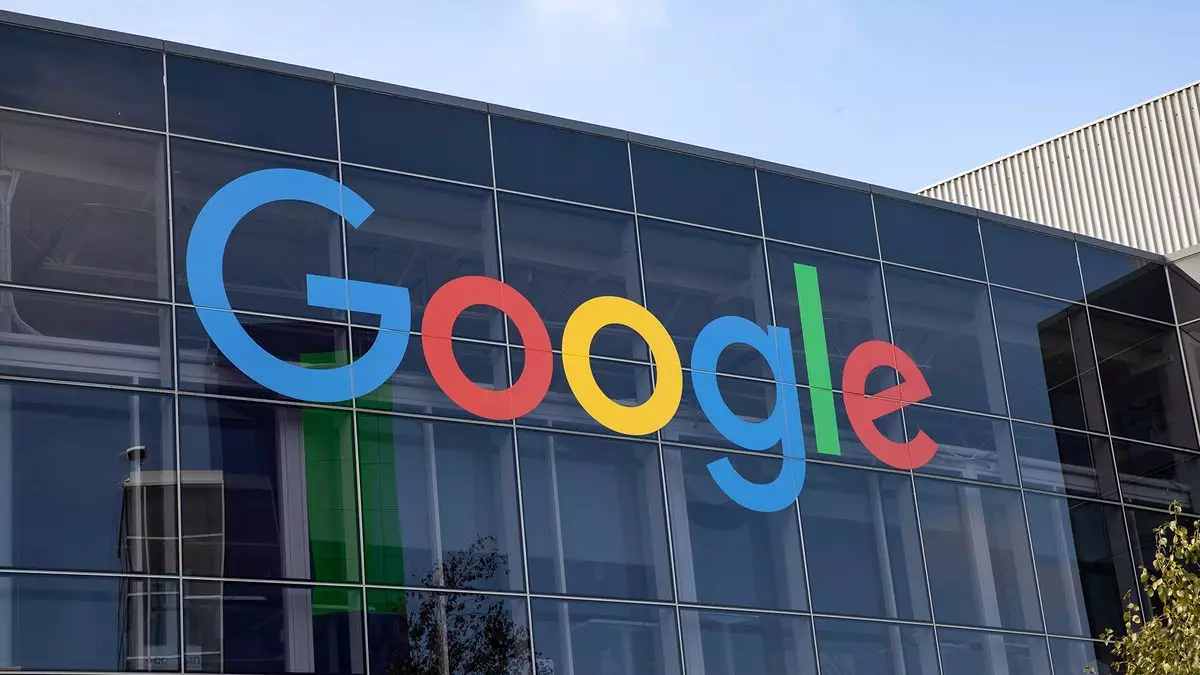The landscape of technology and antitrust regulation is a tempestuous one, particularly for industry behemoths like Google. Recently, the European General Court made headlines by overturning a substantial €1.49 billion fine imposed on the tech giant, which was initially levied back in 2019 by the European Commission (EC). While the financial relief itself is significant, the implications of this court ruling stretch far beyond the mere numbers, speaking volumes about the ongoing transformation of digital market dynamics and regulatory frameworks.
At the heart of the EC’s original ruling in 2019 was an accusation that Google had abused its dominant market position in online search advertising. The Commission alleged that Google enforced restrictive agreements with publishers, severely limiting their ability to use competitor services for advertising on their websites. By ensuring that their own advertising products occupied the most favorable placement, Google not only stifled competition but potentially hindered innovation in the advertising domain.
The ramifications of this ruling were intended to send a strong message: anticompetitive behavior will not be tolerated, especially from a company as influential as Google. This has led to the tightening of regulatory scrutiny over tech giants, reflecting broader concerns about market monopolization and consumer welfare.
The General Court’s recent decision to annul the fine signals a shift in judicial sentiment toward competition laws in the context of innovation and market dynamics. The ruling indicated that while the EC had identified anticompetitive practices, it failed to conclusively demonstrate that these practices materially deterred innovation or harmed consumers. In their assessment, the court emphasized a critical evaluation of the evidence presented, suggesting a more nuanced understanding of market behavior and competition.
Interestingly, this decision underscores a complex landscape: while regulators strive to curb monopolistic behaviors, courts are advocating for a more balanced approach that considers innovation and market welfare. The balance of power within these judicial decisions may evolve, influencing how antitrust cases are approached both in Europe and elsewhere, particularly in the United States.
Despite this triumph, Google finds itself navigating a broader sea of legal challenges. Just a week prior to this ruling, the tech firm faced a failed attempt to overturn a separate €2.4 billion fine, also stemming from antitrust allegations related to exclusivity deals. Additionally, ongoing litigation in the United States has revealed that Google might have violated antitrust laws, with the Department of Justice unveiling a formal complaint against the company for allegedly orchestrating a comprehensive strategy to dominate the digital advertising ecosystem.
This dichotomy — a court victory juxtaposed with ongoing legal challenges — illustrates a pivotal moment for Google. While the annulment of the fine is undoubtedly a win, it is set against a backdrop of millions in fines and significant regulatory scrutiny. Each ruling and complaint adds layers of complexity that the giant must navigate, indicating that while this particular battle has been won, the war on antitrust scrutiny is far from over.
As we consider the implications of the General Court’s decision, it becomes clear that the future of tech regulation will likely feature a delicate interplay of innovation encouragement and competitive fairness. The technology landscape is rapidly evolving, and regulatory frameworks will need to adapt accordingly to foster growth without allowing dominant players to stifle competition.
For companies operating in this space, the message is clear: creativity, ethics, and adherence to regulatory frameworks will become increasingly critical. If the tech industry wishes to avoid the pitfalls of regulatory backlash, embracing transparent practices that promote fair competition will be essential.
Google’s recent court victory is more than just a financial reprieve — it is a moment of reflection for the whole industry. As regulatory bodies and tech giants continue to navigate this tumultuous landscape, understanding the intricate balance between innovation, competition, and consumer welfare will be vital for future sustainability and growth in the digital marketplace.


Leave a Reply